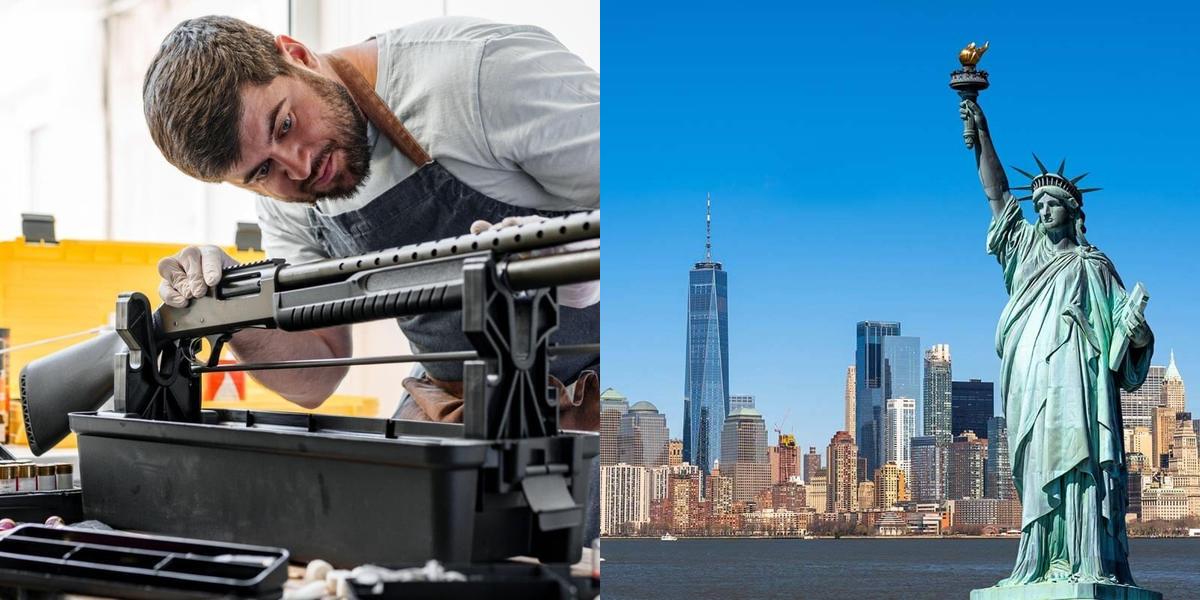How to Become a Gunsmith in New York (2025)

If you're looking for a niche trade that combines mechanical precision with deep legal knowledge, becoming a Gunsmith in New York is a challenging but rewarding path. New York's firearm laws are among the strictest in the nation, meaning gun owners heavily rely on licensed professionals to ensure their firearms are compliant, safe, and functional. While the field is small—employing a specialized workforce across the state—skilled smiths earn a median salary of $55,730 per year, according to recent salary data. This guide provides the definitive 5-step process for navigating the complex web of federal, state, and NYC regulations to launch your career in this specialized craft.
5. Advance Your Skills
Keep learning by taking advanced courses in CNC machining, custom engraving, or armorer training for specific firearm brands. If you're considering opening your own shop, consider also studying small-business management, marketing, and firearms retail compliance.
Where to Find Gunsmith Classes in New York
Dreambound is a free platform that lets you search, filter, and connect with 70 + technical programs statewide.
- Search & filter: Compare cost, schedule, and reviews in seconds.
- Financial aid: Many partner schools list aid or payment plans.
- Online options: Filter for online, in-person, or hybrid formats to fit your lifestyle.
Explore gunsmith courses at Dreambound and start your training today.
Career Paths and Opportunities after Becoming a Gunsmith
- Gun-shop technician: Handle repairs and upgrades for walk-in customers
- Custom gunsmith: Produce bespoke or competition firearms, engravings, and finishes
- Manufacturer employee: Work in production, R&D, or quality control
- Law-enforcement or military armorer: Maintain duty weapons for agencies
- Self-employed shop owner: Open a licensed workshop and build a regional clientele
Frequently Asked Questions
What degree do you need for gunsmithing?
No degree is legally required, but a diploma or certificate from a trade school is the industry standard. An Associate of Occupational Studies (A.O.S.) degree can help with the business side of running a shop.
How hard is it to get a gunsmith license in NYC?
It is very difficult. The NYPD License Division requires extensive documentation, an in-person interview, and a compelling "business necessity." You generally must have a secured commercial location (not a home) to be approved.
What state pays gunsmiths the most?
While New York offers competitive wages due to the high cost of living, states with higher gun ownership rates like Alaska and Wyoming often report high demand and strong earnings for independent smiths.
Final Thoughts
Gunsmithing in New York blends craftsmanship, precision machining, and strict legal compliance. With limited competition and solid pay, licensed gunsmiths can build rewarding careers—whether in a boutique workshop or a manufacturing line. Search "gunsmith" on Dreambound, compare programs, and start mastering the craft today.
If this article doesn't match what you're looking for, you can check out these other articles:

Jessa Guzon is a member of the School Growth and Customer Success Team in Dreambound. She finds joy in assisting both schools and students in reaching their goals by answering their queries and connecting them with the right people. Outside her professional role, Jessa is a happy-go-lucky person with a thirst for adventure.



